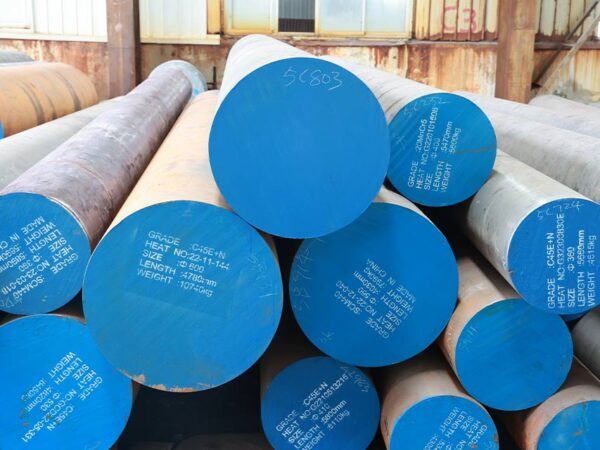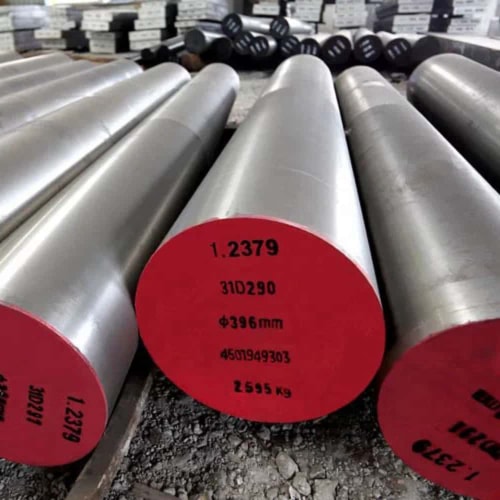Introduction

Tool steel bars are indispensable in numerous industrial applications due to their exceptional properties such as hardness, toughness, and wear resistance. This blog delves into the crucial role of tool steel bars across various industries, exploring their specific uses, advantages, and types.
Properties of Tool Steel Bars
Tool steel bars are renowned for their robust properties that make them suitable for demanding applications:
Hardness
Tool steel bars exhibit high hardness, typically achieved through alloying elements like tungsten, molybdenum, or vanadium. This hardness allows them to maintain sharp edges and resist deformation under high-stress conditions.
Toughness
Despite their hardness, tool steel also possess good toughness, enabling them to absorb impact and shock without fracturing. This property is crucial in applications where tools are subjected to heavy loads or sudden stresses.
Wear Resistance
Tool steel offer exceptional wear resistance, making them ideal for cutting, shaping, and forming applications where prolonged use against abrasive materials is common.
Types of Tool Steel Bars
There are several types of tool steel, each designed for specific applications based on their composition and properties.
| Type | Composition | Applications |
|---|---|---|
| HSS (High-Speed Steel) | Carbon steel alloyed with tungsten, molybdenum, or vanadium | Cutting tools, drills, milling cutters |
| D2 Steel | High carbon, high chromium steel | Punches, dies, blanking tools |
| A2 Steel | Medium carbon, air-hardening steel | Blanking dies, forming dies, punches |
Industrial Applications
Tool steel bars play a vital role in various industries due to their unique properties and versatility:
Automotive Industry
In automotive manufacturing, tool steel are essential for producing molds and dies used in stamping, forming, and shaping vehicle components. They ensure precision and durability in high-volume production processes.
Aerospace Industry
In aerospace applications, tool steel are used for manufacturing critical components such as landing gear, turbine blades, and structural parts. Their high strength, toughness, and heat resistance are crucial for meeting stringent performance requirements.
Manufacturing Sector
In the manufacturing sector, tool steel are employed in injection molds, extrusion dies, and machine components. They contribute to improving productivity, reducing downtime, and enhancing product quality through precise machining and wear resistance.
Advantages of Using Tool Steel
The benefits of utilizing tool steel extend beyond their mechanical properties:
- Versatility: Tool steel can be heat-treated to achieve different hardness levels, allowing manufacturers to tailor their properties for specific applications.
- Longevity: Their high wear resistance extends tool life, reducing replacement costs and downtime associated with maintenance.
- Precision Machining: Tool steel can be machined to very tight tolerances, ensuring accurate dimensions and high-quality finishes in manufactured parts.
Case Studies

Tool Steel Bar in Injection Molding
Tool steel bars such as P20 steel are crucial in injection molding processes where molds must withstand high pressures and temperatures. The high wear resistance of P20 steel ensures durability and precision in molding intricate shapes.
Tool Steel Bar in Cutting Tools
High-speed steel (HSS) bars are extensively used in cutting tools due to their ability to maintain sharp edges at high temperatures. They are essential for achieving precise cuts in metals and other materials.
Conclusion
Tool steel bars are essential materials in modern manufacturing and industrial sectors, offering unmatched properties that enhance productivity, precision, and durability. Their versatility in meeting diverse application needs across automotive, aerospace, and general manufacturing underscores their critical role in advancing technology and innovation.
FAQ
Q: What are the primary factors influencing the selection of tool steel bars?
A: The selection of tool steel bars is influenced by factors such as required hardness, toughness, wear resistance, and specific application requirements.
Q: How do tool steel contribute to reducing production costs in industrial applications?
A: Tool steel contribute to cost reduction by prolonging tool life, minimizing downtime for maintenance, and improving overall process efficiency.
Q: What are the environmental considerations associated with the use of tool steel bars in manufacturing?
A: Tool steel bars are durable materials that contribute to sustainable manufacturing practices by reducing material waste and energy consumption associated with frequent tool replacements.

